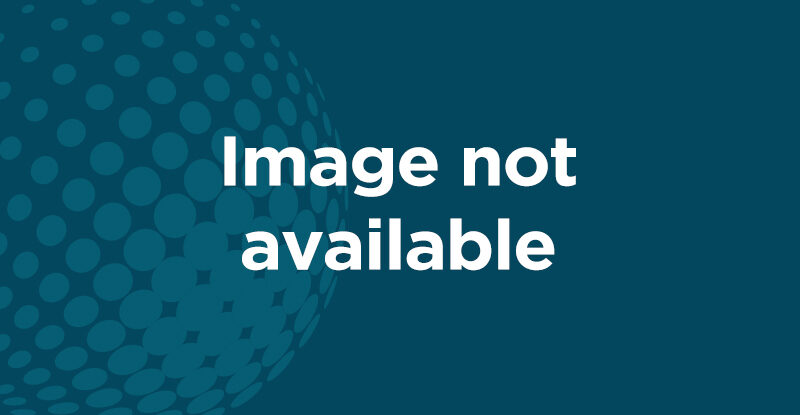Transit in Metro Vancouver could face major cuts, TransLink warns

TransLink, the regional transportation authority that operates Metro Vancouver’s transit system, is warning that major cuts in services will be necessary by 2025 unless a new funding model is established.
The transit authority says it is facing a funding gap of approximately $600 million each year – a shortfall in its budget to operate current transit service levels throughout the region.
According to a new report from TransLink, the budget shortfall would result in significant cuts to all transit services, including cutting bus service in half, reducing SkyTrain and SeaBus trips by up to one-third, and potentially eliminating the West Coast Express commuter service. The cuts could also see up to 145 night bus routes cancelled and HandyDART services for people with disabilities reduced by 35 per cent.
“These cuts would be devastating to the region, and we’re doing everything we can to stop them from happening,” said TransLink CEO Kevin Quinn. “Unfortunately, this is a window into our reality if a solution to our outdated funding model is not implemented. We need all levels of government to come together to protect and expand transit service to meet the needs of Metro Vancouver’s growing population.”
In a statement, B.C.’s Ministry of Transportation and Infrastructure said the provincial government has “provided funding to make sure that TransLink hasn’t had to cut services” over the past few years. The ministry added that the province “continues to make record investments in transit infrastructure to ensure people can get to their destinations conveniently and efficiently.”
Regional Politicians Voice Concerns
The B.C. government has been providing TransLink with temporary relief funding since the start of the COVID-19 pandemic. That provincial funding is set to end next year. Municipal leaders in Metro Vancouver have been quick to voice their concerns over TransLink funding, and indicated they expect the provincial and federal governments to do more to address the shortfall.
“Cuts to transit services in Metro Vancouver would be unacceptable, they would result in crippling congestion, devastating environmental impacts, and would leave hundreds of thousands of people stranded,” said Port Coquitlam Mayor Brad West, chair of TransLink’s Mayors’ Council on Regional Transportation. “The mayors are ready to do their part, but we need the next provincial government, as well as the federal government, to work with us to ensure these cuts to transit services never happen and begin expanding our system rapidly in line with growing needs.”
TransLink has said that if services are cut, it would take at least a decade to return transit services and ridership back to current levels, even if investments return.
“I’m not surprised to hear the gravity of the cuts,” said Richmond Mayor Malcolm Brodie. “I’m fully confident that the province particularly, and the federal government, will step up and be supportive.”
B.C. Transportation and Infrastructure Minister Rob Fleming is urging the federal government to provide further funding. In Delta, the city council held an emergency meeting on July 30 to discuss TransLink’s funding gap. Quinn warned that the potential cuts would have a major impact of transportation in Delta and other cities in Metro Vancouver.
“There would be almost no transit services operating in Langley, White Rock, South Delta, Port Coquitlam, Maple Ridge, Pitt Meadows, and much of the North Shore,” he said.
“This is an existential crisis for Delta and our entire region,” said Delta Coun. Dylan Kruger, who called the emergency meeting. “If these cuts are allowed to proceed, the impact on the daily lives of tens of thousands of residents will be devastating. Council must act urgently to demand better solutions from senior government.”
Provincial opposition leaders have been quick to blame the government for the funding gap. Conservative Party of B.C Leader John Rustad said Premier David Eby’s government has “bungled TransLink,” calling it “irresponsible and wrong.”
In an interview with CKNW radio, B.C. Premier David Eby said his government has spent $800 million to help TransLink expand services. “Our record’s clear on that and our platform will be clear on that as well,” Eby said.
Funding Shortfall Forcing Cuts
Transit systems were hit hard by the pandemic as lockdowns and distancing measures reduced ridership. Quinn says that although demand for transit has been increasing, the funding needed to support the network has not.
Transit ridership in Metro Vancouver has largely rebounded to pre-pandemic levels while fare increases have remained below the rate of inflation.
Ridership grew by around 20 per cent across the network in 2023, with strongest growth coming from regions facing the deepest cuts, including Delta, Langley City, and White Rock.
Due to the pandemic, the 2020 fare increase was cancelled and held at levels below inflation from 2021-2024. With no fare increase in 2020 and 2.3 per cent increases in all subsequent years, TransLink says its costs have risen faster than fare prices it can charge.
TransLink has also faced depreciating revenue from other sources of income. In 2023, TransLink collected $34 million less revenue from the fuel tax than in 2022. The authority says it projects those loses to grow over the next decade.
In a meeting on July 25, the mayors’ council voted to send an open letter to provincial party leaders asking them to establish a permanent $3.4 billion per year fund for TransLink.
“We need (governments) at the table to commit,” said North Vancouver Mayor Linda Buchanan, “Not just talk and say it’s important to them, but actually commit to the fact that public transit is a core essential service.”
Growing Ridership Means Problems
A rebound in ridership also means the return of a significant problem for the system – overcrowding. Ridership data released in April showed that bus riders are dealing with unprecedented overcrowding. “Metro Vancouver’s population is growing rapidly, and so is crowding on our buses,” says TransLink CEO Kevin Quinn.
The data is from the 2023 Transit Service Performance Review which details last year’s ridership trends across Metro Vancouver. It shows that around 10 per cent of all weekday bus trips experienced overcrowding in the Fall of 2023.
In April, the B.C. government said it is committing up to $300 million in new funding to help TransLink cope with rising demand.
“With this funding, people will experience fewer instances of overcrowded buses passing them by and benefit from additional service increases in the long-term,” Fleming said. MW
✯ Municipal World Executive and Essentials Plus Members: You might also be interested in Joey Cyples’ article: Sustainable, responsible, available net-zero transportation now.
Ibrahim Daair is staff writer at Municipal World.
Related resource materials:
- Vancouver’s Gastown goes car free this summer
- Surrey, Mississauga latest cities to launch e-bike programs
- Municipalities switch to electric buses to cut emissions


